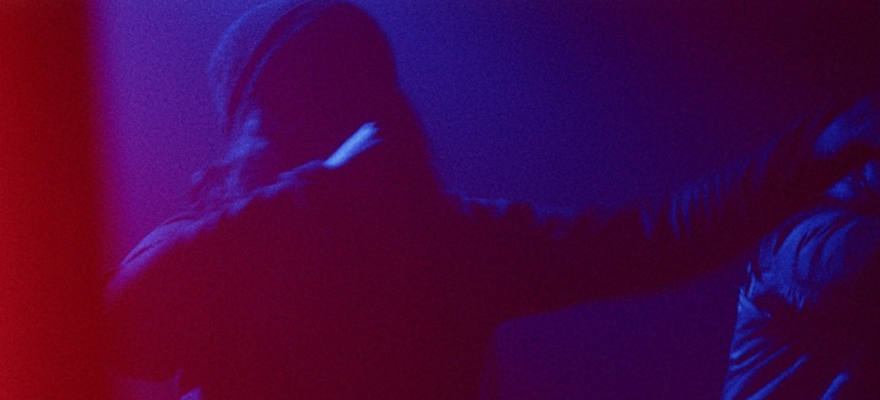
Blog

Dr Noah Birksted-Breen discusses the production of a forthcoming and original new Black British hip-hop drama that he and Professor Rajinder Dudrah worked on together.
[Poster for forthcoming film, FAM, written and performed by Lady Sanity and Stanza Divan]
This year Sputnik Theatre Company – in collaboration with Slanguages (Birmingham City University) and Creative Multilingualism (University of Oxford) – launches an original hip-hop drama, FAM, as an online film, exploring notions of black British identity, urban music and racial injustice. In this blog, I explain how this project was conceived – and how we pivoted from an experimental translation into an original playwriting commission after a couple of set-backs in 2019/2020.
When set-backs are opportunities in disguise
In 2018, I was fortunate enough to direct a Research and Development week with Lady Sanity and Stanza Divan, two Midlands-based hip-hop artists, supported by academic Rajinder Dudrah, Professor of Cultural Studies and Creative Industries at Birmingham City University (BCU). At that point, we were engaged in an experimental process of theatre adaptation. During 2018, Sanity and Stanza had adapted the first fifteen minutes of a contemporary Russian play, Oxygen by Ivan Vyrypaev – about a disenfranchised younger generation of Russians. The week of rehearsals culminated in a performance in front of a live audience at BCU in October 2018 – and you can watch it by clicking through this link1. All four of us (artistic and academic collaborators) were poised to create a full production of Oxygen in 2020 and then two disasters struck. The first was a complication to do with the license for Oxygen. As the two key funders of the project were universities – University of Oxford and Birmingham City University, a typical “commercial” license was unlikely to work. Given how productive the collaboration had been to date – disrupting multiple conventional boundaries between genres (theatre and hip-hop) and disciplines (an expert in contemporary Russian culture, myself, collaborating with a specialist in black and Asian popular culture, Professor Dudrah) – we decided to commission an original drama from the hip-hop artists. The new work would allow us to continue the conversations we had had around the identities and challenges facing young Russians in the early 2000s – when Oxygen was written – in the face of their then-newly elected authoritarian president, Vladimir Putin.
It is strange now to think that we might have been about to launch a new Russian play in today’s climate. Personally I am a lot less vexed by the idea of staging (certain) new Russian plays in the UK based on my highly critical position towards the Russian government over many years. Since 2005, I have made it my mission to bring activist and dissident contemporary Russian plays to British audiences – such as Elena Gremina’s One Hour Eighteen (2010)2 a searing documentary play exposing the (then) largest known case of Russian government corruption, and Mikhail Durnenkov’s The War Hasn’t Yet Started (2014) – a brilliant, bleak comedy which depicted an overtly critical portrait of Russia’s occupation of Crimea, and invasion of eastern Ukraine, in 2014. While I fully support the boycott of Russian government officials and their allies – indeed I can’t understand why the UK ever accepted ‘dirty’ Putin-related Russian money (or indeed ‘dirty’ money from any country), I would suggest there is a rationale for staging the work of dissident Russian artists, just as there was during the Cold War.
In any case, Sanity and Stanza accepted the invitation to continue the collaboration and write an original play fictionalising the challenges they have had to overcome as Black British urban musicians, in order to forge their reputations as hip-hop artists. Then came the second set-back which was, of course, the Covid-19 pandemic. We were all fortunate enough not to suffer any major personal health issues. Wanting to continue with the project, we agreed that we would turn their newly written play, FAM, into a film, making it even more accessible to audiences locally and globally. The film is due for release this year and will be distributed for free on Vimeo and YouTube. Please sign up to these mailing lists to hear about its forthcoming release: Sputnik3 and Creative Multilingualism (Twitter)4.
What is FAM?
FAM fictionalises the real-life experiences of Lady Sanity and Stanza Divan. Both Sanity and Stanza are no strangers to making video art – notice the theatrical flourishes in Can’t Say5, where Sanity uses theatrical masks and a semi-circular space like an amphitheatre as her backdrop to lyrics which lay claim to her identity as a black female urban musician. And in Until the Internet Kills the Video Star6, Stanza uses the metatheatrical visual language of old-fashioned video-cassettes to echo with the lyrics about video and the internet. In other words, both artists know how to tell stories, so why create a playtext?

[Lady Sanity in Scene 2, FAM, performing her grandmother’s story]
Without wanting to speak for the two writer-performers, I would suggest that where FAM departs from their musical output to date is in the opportunity for a longer narrative – offering space to include scenes about their own family histories. Both Sanity and Stanza have grandparents who came from the Caribbean to the UK as part of the so-called Windrush generation. The very process of making the work led to personal revelations when the artists interviewed their families – to get new details about their pasts. For instance, Stanza discovered that his grandmother had almost not followed her husband to the UK – it was only a fierce storm, ruining the family grocery store and home, that increased her resolve to take the long trip by sea to the UK. A surprising discovery where it is starkly clear how much the decisions of previous generations shape the lives of the next.
In FAM, Sanity and Stanza both reflect on the joys, and challenges, of being a black British urban musician. The film is set in 2017 – when Form 696 was still in force in London. Form 696 was set up in 2005 and required music venues to profile the ethnicity of their audiences. The intention of Form 696 was - it seems – to create obstacles for, and restrict, grime, rap and black urban music genres (although that has continued in different ways even after Form 696 was rescinded).7 So FAM also tells an important story about racism, inviting viewers not to forget how many obstacles must be overcome by black urban musicians, as well as how pervasive and overt institutional racism in policing can be. This film serves as a reminder of how long-overdue a proper reckoning is, to create an anti-racist police which serves – as well as protects – its communities.

[Lady Sanity in Scene 7, FAM]

[Stanza Divan in Scene 7, FAM]
The film’s beating heart though, for me, is the sheer energy and joy of the performances and music by Sanity and Stanza. Their sparring raps, and some spoken word pieces (raps without music), create an invitation to experience their sense of identity: how they overcome prejudice; how they create art – refusing to commercialise their music at the expense of their “conscious” messages; and how they create meaning as Black British artists. Representations of Black British identity are still far too rare in the British cultural industries – with some notable exceptions celebrated by the Diaspora Screen Media Network. I hope this film will serve as a reminder of how much originality “diverse” artists can bring with their artistic offerings to the UK creative industry. These are the artists who still have to work hard to be given space in a world where corporate giants, such has the streaming platforms, do not favour independent, experimental and non-commercial artists. I hope FAM will be one additional way that these artists can gain attention for their talent and their nuanced narratives about Black British identities.
The journey from new Russian play to original hip-hop drama was not planned in the way it turned out, but I hope it offers an example of how collaborating across genres and disciplines – in other words, adopting an experimental practice as performers, theatre-makers and academics – can lead to surprising and wonderful outputs.